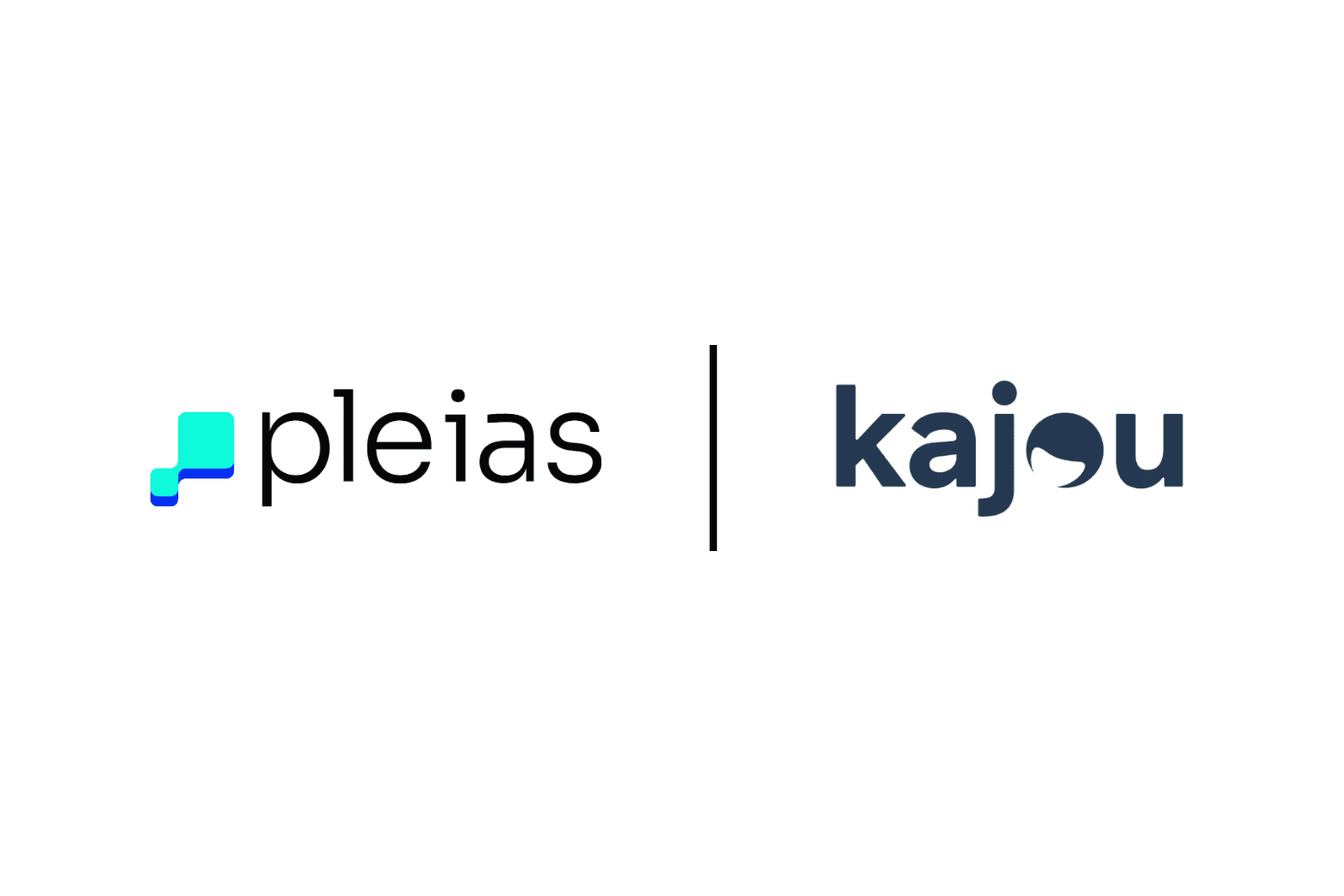WE DESIGN AND PRETRAIN WORLD’S MOST EFFICIENT LLMS TO PROVE THAT AI CAN BE SCALED
ON BUDGET - WITH OPEN DATA
WE DESIGN AND PRETRAIN WORLD’S MOST EFFICIENT LLMS TO PROVE THAT AI CAN BE SCALED ON BUDGET - WITH OPEN DATA
WE DESIGN AND PRETRAIN WORLD’S MOST EFFICIENT LLMS TO PROVE THAT AI CAN BE SCALED ON BUDGET - WITH OPEN DATA
OUR FOUNDATION MODELS
OUR FOUNDATION MODELS
PROFICIENT AT KEY ENTREPRISE TASKS
PROFICIENT AT KEY ENTREPRISE TASKS
PROFICIENT AT KEY ENTREPRISE TASKS
LEAN & FAST
LEAN & FAST
LEAN & FAST
COMPLIANT & TRANSPARENT
COMPLIANT & TRANSPARENT
COMPLIANT & TRANSPARENT
FOUNDING TEAM



PIERRE-CARL LANGLAIS
01
PhD Information science
02
Associate Researcher at Sorbonne Center for Artificial Intelligence and Sciences Po Médialab



IVAN YAMSHCHIKOV
01
PhD Financial Mathematics
02
Research Professor at CAIRO, Technical University of Applied Sciences Würzburg for Artificial Intelligence
03
Ex-Yandex, R&D Lead in Human-Machine interaction, Ex-ABBYY, AI Evangelist



ANASTASIA STASENKO
01
PhD Philosophy, ENS Ulm
02
Associate Senior Lecturer at Sorbonne-Nouvelle University
03
Ex-Hachette Publishing
TEAM

PAVEL CHIZHOV
AI Scientist
PhD University of Würzburg University of Tartu
Ex-Yandex

PAVEL CHIZHOV
AI Scientist
PhD University of Würzburg University of Tartu
Ex-Yandex

PAVEL CHIZHOV
AI Scientist
PhD University of Würzburg University of Tartu
Ex-Yandex

HANNA SHCHARBAKOVA
AI Engineer
M.Sc. University of Lorraine and Saarland University
B.A. Higher School of Economics

HANNA SHCHARBAKOVA
AI Engineer
M.Sc. University of Lorraine and Saarland University
B.A. Higher School of Economics

HANNA SHCHARBAKOVA
AI Engineer
M.Sc. University of Lorraine and Saarland University
B.A. Higher School of Economics

GABRIEL ABENHAIM
AI Engineer
M.Eng. CentraleSupélec
B.S. Paris-Saclay

GABRIEL ABENHAIM
AI Engineer
M.Eng. CentraleSupélec
B.S. Paris-Saclay

GABRIEL ABENHAIM
AI Engineer
M.Eng. CentraleSupélec
B.S. Paris-Saclay

YANNICK DETROIS
AI Scientist
M.Eng. EPFL

YANNICK DETROIS
AI Scientist
M.Eng. EPFL

YANNICK DETROIS
AI Scientist
M.Eng. EPFL

ANTON CHANGALIDI
Lead AI Engineer
M.Sc. Maastricht University
B.Eng. ITMO

ANTON CHANGALIDI
Lead AI Engineer
M.Sc. Maastricht University
B.Eng. ITMO

ANTON CHANGALIDI
Lead AI Engineer
M.Sc. Maastricht University
B.Eng. ITMO

CARLOS ROSAS
Senior Data Scientist
PhD ENS ULM
M.S. Sorbonne Université

CARLOS ROSAS
Senior Data Scientist
PhD ENS ULM
M.S. Sorbonne Université

CARLOS ROSAS
Senior Data Scientist
PhD ENS ULM
M.S. Sorbonne Université

IAROSLAV NEVEROV
Full-stack AI Engineer
M.Eng. Ecole 42
ex-Sberbank

IAROSLAV NEVEROV
Full-stack AI Engineer
M.Eng. Ecole 42
ex-Sberbank

IAROSLAV NEVEROV
Full-stack AI Engineer
M.Eng. Ecole 42
ex-Sberbank

MOHAMED HADJ RABAH
Communications Lead
M.A. Sorbonne-Nouvelle

MOHAMED HADJ RABAH
Communications Lead
M.A. Sorbonne-Nouvelle

MOHAMED HADJ RABAH
Communications Lead
M.A. Sorbonne-Nouvelle

PANDORA LANGLAIS
Project manager
M.A Ecole du Louvre

PANDORA LANGLAIS
Project manager
M.A Ecole du Louvre

PANDORA LANGLAIS
Project manager
M.A Ecole du Louvre

PIETER DELOBELLE
AI Scientist
PhD KU Leuven
ex-Apple, ex-Aleph Alpha

PIETER DELOBELLE
AI Scientist
PhD KU Leuven
ex-Apple, ex-Aleph Alpha

PIETER DELOBELLE
AI Scientist
PhD KU Leuven
ex-Apple, ex-Aleph Alpha

ENRICO MILLI
Full-stack AI Engineer
BsC University of Greenwich

ENRICO MILLI
Full-stack AI Engineer
BsC University of Greenwich

ENRICO MILLI
Full-stack AI Engineer
BsC University of Greenwich

VISHNU PRASAD
AI Engineer
M.Eng.THWS

VISHNU PRASAD
AI Engineer
M.Eng.THWS

VISHNU PRASAD
AI Engineer
M.Eng.THWS
OUR PARTNERS












Open Trusted Data Initiative Lead


Member of the Inception Program


Local AI Builders
RESEARCH
BPE Gets Picky: Efficient Vocabulary Refinement During Tokenizer Training
Pavel Chizhov, Catherine Arnett, Elizaveta Korotkova, Ivan P. Yamshchikov
Language models can largely benefit from efficient tokenization. However, they still mostly utilize the classical BPE algorithm, a simple and reliable method. This has been shown to cause such issues as under-trained tokens and sub-optimal compression that may affect the downstream performance. We introduce Picky BPE, a modified BPE algorithm that carries out vocabulary refinement during tokenizer training. Our method improves vocabulary efficiency, eliminates under-trained tokens, and does not compromise text compression. Our experiments show that our method does not reduce the downstream performance, and in several cases improves it.
Language models can largely benefit from efficient tokenization. However, they still mostly utilize the classical BPE algorithm, a simple and reliable method. This has been shown to cause such issues as under-trained tokens and sub-optimal compression that may affect the downstream performance. We introduce Picky BPE, a modified BPE algorithm that carries out vocabulary refinement during tokenizer training. Our method improves vocabulary efficiency, eliminates under-trained tokens, and does not compromise text compression. Our experiments show that our method does not reduce the downstream performance, and in several cases improves it.
Toxicity of the Commons: Curating Open-Source Pre-Training Data
Catherine Arnett, Eliot Jones, Ivan P. Yamshchikov, Pierre-Carl Langlais
Open-source large language models are becoming increasingly available and popular among researchers and practitioners. While significant progress has been made on open-weight models, open training data is a practice yet to be adopted by the leading open-weight models creators. At the same time, there researchers are working to make language models safer. We propose a data curation pipeline to reduce harmful outputs by models trained on public domain data. There are unique challenges to working with public domain data, as these sources differ from web text in both form and content. Many sources are historical documents and are the result of Optical Character Recognition (OCR). Consequently, current state-of-the-art approaches to toxicity filtering are often infeasible or inappropriate for open data models. In this paper, we introduce a new fully open-source pipeline for open-data toxicity filtering. Our contributions are threefold. We create a custom training dataset, ToxicCommons, which is composed of texts which have been classified across five different dimensions (racial/origin-based, gender/sex-based, religious, ability-based discrimination, and violence). We use this dataset to train a custom classifier, Celadon, that can be used to detect toxic content in open data more efficiently at a larger scale. Finally, we describe the balanced approach to content filtration that optimizes safety filtering with respect to the filtered data available for training.
Open-source large language models are becoming increasingly available and popular among researchers and practitioners. While significant progress has been made on open-weight models, open training data is a practice yet to be adopted by the leading open-weight models creators. At the same time, there researchers are working to make language models safer. We propose a data curation pipeline to reduce harmful outputs by models trained on public domain data. There are unique challenges to working with public domain data, as these sources differ from web text in both form and content. Many sources are historical documents and are the result of Optical Character Recognition (OCR).
Consequently, current state-of-the-art approaches to toxicity filtering are often infeasible or inappropriate for open data models. In this paper, we introduce a new fully open-source pipeline for open-data toxicity filtering. Our contributions are threefold. We create a custom training dataset, ToxicCommons, which is composed of texts which have been classified across five different dimensions (racial/origin-based, gender/sex-based, religious, ability-based discrimination, and violence).
We use this dataset to train a custom classifier, Celadon, that can be used to detect toxic content in open data more efficiently at a larger scale. Finally, we describe the balanced approach to content filtration that optimizes safety filtering with respect to the filtered data available for training.
PRESS
CONTACT@PLEIAS.FR
CONTACT@PLEIAS.FR
CONTACT US
We build energy-efficient LLMs for information-intensive
and highly-regulated industries.
© 2025 PleIAs



UP
We build energy-efficient LLMs for information-intensive and highly-regulated industries.
© 2025 PleIAs



We build energy-efficient LLMs for information-intensive
and highly-regulated industries.
© 2025 PleIAs



UP





